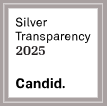
Empowering Guide: Understanding Menstrual Health Management Challenges and Solutions
Introduction
Menstrual health management is a critical issue affecting approximately 52% of the global female population. Despite its universality, managing menstruation remains a significant challenge, especially in low to middle-income countries. This blog explores the various methods used for menstrual management and the significant challenges faced by women and girls in maintaining menstrual hygiene.
Methods Used for Menstrual Health Management
Menstrual health products vary widely, from traditional materials to modern sanitary products:
- Traditional Methods: Leaves, hay, toilet or tissue paper, cotton wool, and cloth.
- Modern Products: Sanitary pads, tampons, menstrual cups, and menstrual underwear.
In developed nations, pads and tampons are commonly used and easily accessible. However, in many developing regions, women and girls often rely on less hygienic alternatives like cloth or leaves due to the lack of availability or affordability of modern sanitary products. For more information on menstrual products, visit Planned Parenthood.
Challenges in Menstrual Hygiene
The management of menstrual health is fraught with difficulties, especially in underprivileged areas:
- Educational Impact: In Africa, 1 in 10 school-aged girls skips school during her menstrual period. In India, 20% of adolescent girls miss school during menstruation. Learn more about the impact on education at UNICEF.
- Misconceptions: A staggering 48% of girls in Iran mistakenly believe menstruation is a disease. Correcting misconceptions is vital for menstrual health management. Read more at World Health Organization (WHO).
- Economic Hardships: There are instances in sub-Saharan Africa where school-aged girls engage in transactional sex to afford menstrual hygiene products. Addressing economic barriers is crucial. Find out more at World Bank.
- Lack of Facilities: WHO/UNICEF estimates that 500 million women and girls globally lack proper facilities for managing their menstrual health.
- Knowledge Gap: A study in South Asia revealed that 33% of school-going girls were unaware of menstruation until they experienced it for the first time, leading to stress, shame, and fear.
Essential Aspects of Menstrual Health Management
To ensure women and girls can manage their menstruation effectively and with dignity, several conditions must be met:
- Access to Sanitary Materials: Adequate sanitary materials are crucial for absorbing or collecting menstrual blood.
- Privacy and Security: Private and secure locations for changing sanitary products are necessary.
- Hygiene Facilities: Availability of water and soap for washing, along with safe and accessible disposal options for used materials.
- Education: Comprehensive education about the menstrual cycle and health management is essential for both girls and boys to foster understanding and reduce stigma. For comprehensive educational resources, visit KidsHealth.
Conclusion
Addressing these challenges is vital for empowering women and girls to manage their menstrual health with confidence. It not only impacts their education and health but also their overall well-being and status in society. Our global community must continue to work towards solutions that provide adequate resources, education, and support for menstrual health management worldwide. Visit our Menstrual Health Management Section for more resources and support.
All Categories
Recent Posts
Why SDG 4 Cannot Be Achieved Without Ending Period Poverty
Tags
Give them a helping hand
Every donation fuels our mission to combat period poverty. Your generosity brings us closer to menstrual equity.
+234-909-482-1642
inquiries@blossomflow.org




